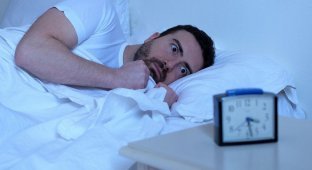Sleep less than 7 hours a day? AI has revealed the consequences of lack of sleep (6 photos)
We are often told that we need at least seven hours of sleep a night to get a good night's rest. However, many people struggle to keep up with this routine. Experts warn that not getting enough sleep can have negative consequences for our bodies. 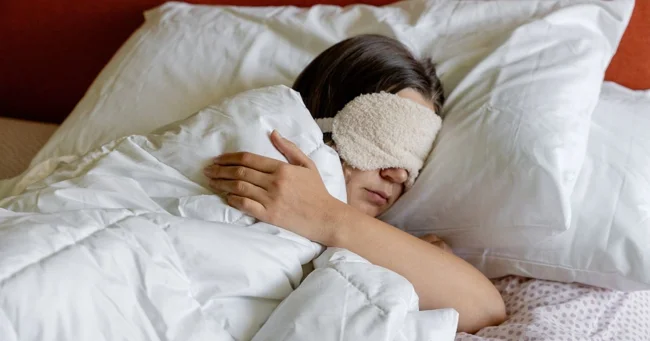
Sleep technology company Simba has used artificial intelligence to identify the physical effects of not getting enough rest.
The resulting images, from a bloated belly to rashes, can serve as a reminder of how important it is to get enough sleep. 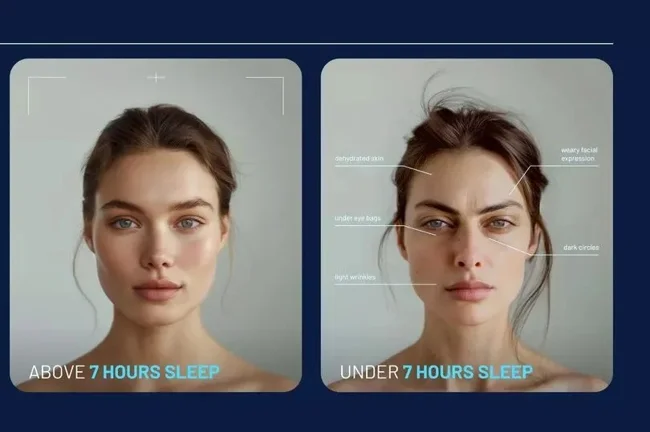
“Lack of sleep doesn’t just make you tired – it has a negative impact on your entire body,” says Lisa Artis, deputy chief executive of The Sleep Charity. “Blood flow is reduced, skin becomes dull and lacks radiance and vitality. Not getting enough sleep also increases levels of the stress hormone cortisol. Cortisol, in turn, increases inflammation in the skin, which can worsen conditions like eczema and psoriasis, causing irritation, redness and itching.”
To create these images, Simba surveyed 2,175 adults in the UK about their sleep habits, physical health and appearance. 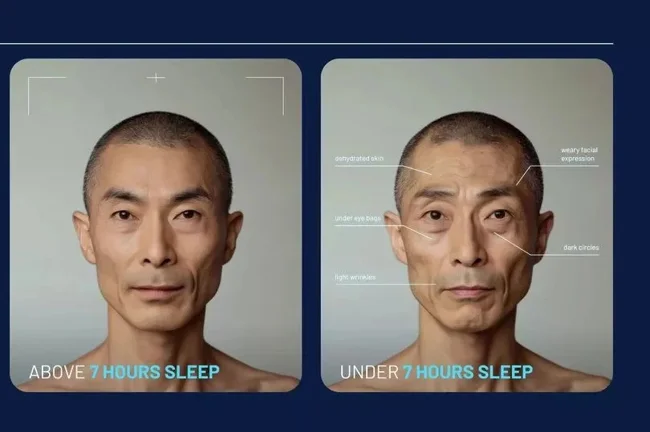
The answers were then fed to artificial intelligence, which used the information to recreate the effects of sleep deprivation. The skin is obviously the first to react.
Of those who reported experiencing sleep deprivation every night, 15% reported brittle nails, and 24% experienced increased skin sensitivity.
Other common skin symptoms included eczema (16%), psoriasis (7%), and a dull complexion (10%). 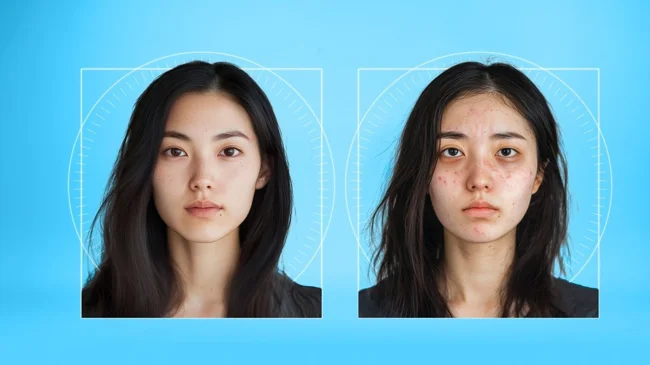
“At night, the skin regenerates and repairs itself,” explains Artis. “Blood flow increases while you rest, which supports natural processes and promotes a healthy, radiant complexion.”
Lack of sleep can also increase the risk of weight gain. Research has shown that 26% of people who don’t get enough sleep are overweight, and 32% suffer from bloating.
“During sleep, the body rebalances hormones like ghrelin and leptin, which control feelings of hunger and fullness. Without enough rest, ghrelin levels increase, making people feel hungrier, while leptin levels decrease, reducing feelings of fullness. This hormonal imbalance triggers overeating, especially cravings for high-calorie, high-sugar foods."
"Women are more likely to see an increase in fat in the hips and thighs due to hormonal changes, while men may notice more belly fat due to decreased testosterone," the expert added. 
Another unusual change associated with lack of sleep is cold hands and feet. Body temperature is also under circadian control. Rest and thermoregulation are closely linked.
Lack of sleep can impair the body's ability to manage and regulate its internal temperature, causing fluctuations and discomfort.
A typical adult needs between 7 and 9 hours of sleep. 
However, sleep needs can vary depending on age, health, and personal circumstances. In addition, some people naturally sleep more than others.
Teenagers, children, and infants need more sleep because they are still growing, but this varies: a newborn may sleep between 8 and 16 hours.












